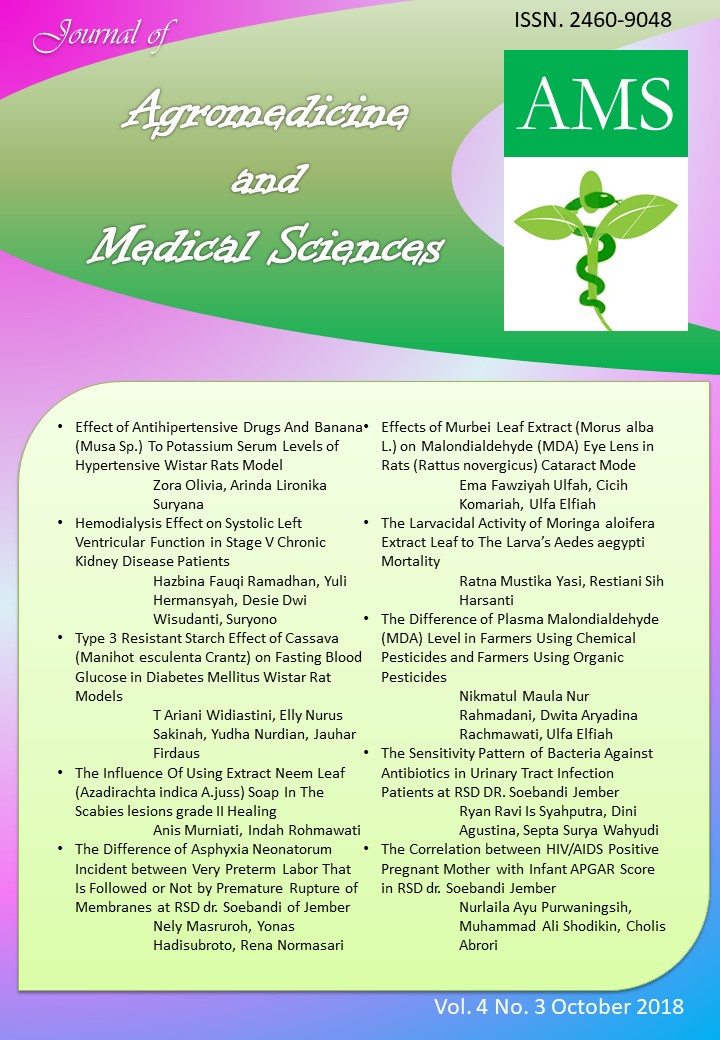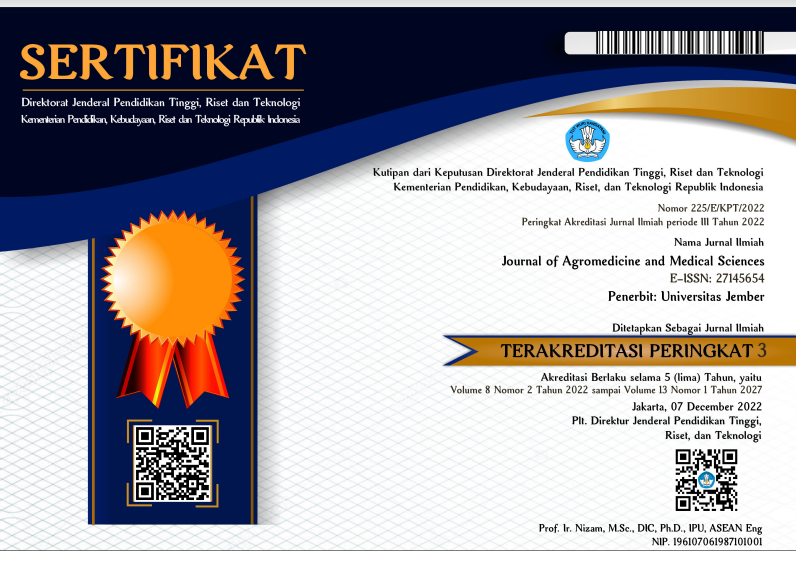Type 3 Resistant Starch Effect of Cassava (Manihot esculenta Crantz) on Fasting Blood Glucose in Diabetes Mellitus Wistar Rat Models
DOI:
https://doi.org/10.19184/ams.v4i3.6469Abstract
Type 2 Diabetes Mellitus (T2DM) is a condition in which both insulin secretion and insulin sentivity disturbed. One of therapeutic approach of T2DM is through diet modification using resistant starch (RS) that has proven controlling both postprandial and fasting blood glucose. Cassava starch has 28,57% amylose and 51,24% amylopectin that can be increased through autoclaving-cooling process. Therefore, it can resist the digestion proess by amylose enzyme. The aim was to describe the effect of type 3 resistant starch cassava (Manihot esculenta Crantz) on fasting blood glucose (FBG) in Wistar diabetic rat models. This study was quasy experimental post-test only control group design using 16 Wistar rats divided into 4 groups, KN (normal), K- (DM), P1 (DM + cassava starch diet), and P2 (DM + type 3 RS cassava diet). High fat diet (HFD) and low dose streptozotocin (STZ) used as diabetic agents. Rats fed cassava starch or type 3 RS cassava diet for 28 days. GOD-PAP method used to measure the FBG level. The data analyzed using One Way ANOVA test with p>0,05 as significant value. The result shows no significant differences within experimental groups.
Keywords: cassava, autoclaving-cooling, resistant starch, FBG






















